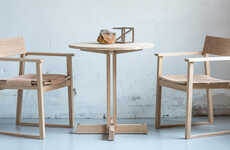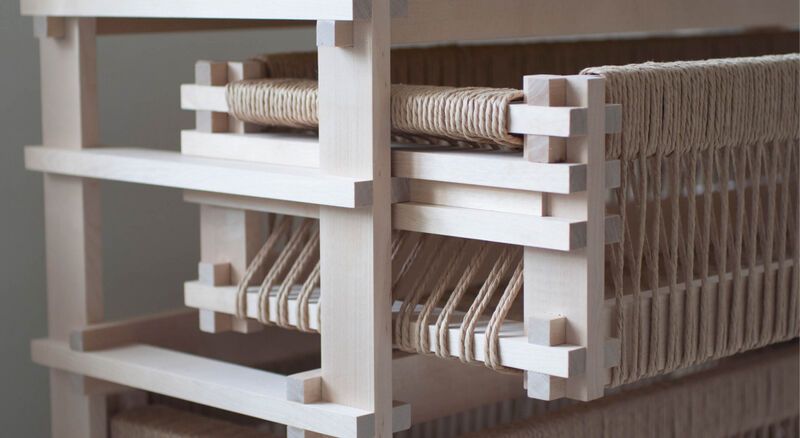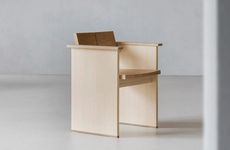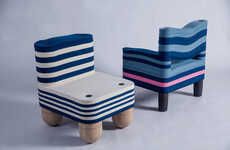
Sawmill and Tannery Waste are Used for the Betula Project
Elena Rahman — November 10, 2021 — Art & Design
References: martinthubeck & design-milk
The Betula project is a collection of sustainably-made furniture. Each piece in the series is made from waste generated by a Swedish birch sawmill and includes sawdust and tannery waste. The collection was designed and created by Martin Thubeck, a Stockholm-based designer.
The Betula collection features a frame made from identical reclaimed wood pieces connected by a single joint. The chairs feature rawhide rejected by leather companies. The hide is dried around the frame to secure it into place. Thubeck's sustainable furniture collection also includes a dresser made with similar materials. Both pieces are designed to disassemble, making them ideal for storage or transportation. According to the designer, the Betula project is a reaction to modern forestry and its wastefulness.
Image Credit: Martin Thubeck
The Betula collection features a frame made from identical reclaimed wood pieces connected by a single joint. The chairs feature rawhide rejected by leather companies. The hide is dried around the frame to secure it into place. Thubeck's sustainable furniture collection also includes a dresser made with similar materials. Both pieces are designed to disassemble, making them ideal for storage or transportation. According to the designer, the Betula project is a reaction to modern forestry and its wastefulness.
Image Credit: Martin Thubeck
Trend Themes
1. Sustainable Materials - The trend of using sawmill and tannery waste in furniture production creates the opportunity for companies to explore the use of other sustainable materials and create new products.
2. Modular Design - The use of identical reclaimed wood pieces connected by a single joint in the Betula collection presents a disruptive innovation opportunity for companies to explore modular design in furniture production, allowing for easier disassembly, storage and transportation.
3. Circular Economy - The Betula project exemplifies the concept of circular economy by utilizing waste from one industry to create a product for another industry. This trend presents an opportunity for companies to explore circular economy practices in their own production and supply chains.
Industry Implications
1. Furniture Industry - The Betula project, which is made from sawmill and tannery waste, presents an opportunity for companies in the furniture industry to explore using sustainable materials in their production and incorporate more eco-friendly practices in their supply chains.
2. Forestry Industry - The Betula project presents a disruptive innovation opportunity for companies in the forestry industry to explore more sustainable waste management practices and how to utilize waste in the production of other products.
3. Leather Industry - The use of rawhide rejected by leather companies in the Betula collection creates an opportunity for companies in the leather industry to explore utilizing more eco-friendly practices in their production and waste management, which could lead to new product opportunities.
6.3
Score
Popularity
Activity
Freshness























